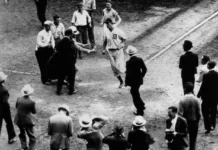
Is it possible to do all your reflections about the previous year on a single day? And on a day when you do not even eat due to all the sins you committed?
Of course not, according to the Jewish calendar and local rabbis. The month of Elul is the last month of the Jewish yearly cycle. It leads up to Rosh Hashanah and Yom Kippur. It is also known as “a time of introspection,” as multiple internet resources describe the period.
But in the multidenominational and religiously fluid Jewish community of today, Elul is like other parts of the calendar: overlooked and likely under-observed. At the same time, it can still mean something. But what?
Just like we did with Tu B’Av, the Jewish holiday of love, in August, we asked a rabbi from each denomination to interpret Elul for their modern congregations.
Orthodox: Rabbi Yonah Gross of Congregation Beth Hamedrosh (Wynnewood)
Gross believes that Rosh Hashanah and Yom Kippur do not offer enough quiet reflection time to take stock of the year. You’re going to services. You’re reading the prayer book. There are other people around.
Elul exists so you can go into the High Holidays with an understanding of what you need to think about.
“Taking a moment to reflect and then think about what I’m going to ask for on Rosh Hashanah and Yom Kippur,” Gross said.
Conservative: Rabbi Jon Cutler of Beth Israel Congregation of Chester County
To Cutler, who graduated from the Reconstructionist Rabbinical College but serves a Conservative congregation, repetition is the point of Elul. You must think about the past year and its lessons over and over to internalize them. Once you do that, you can grow.
“It’s not just self-reflection. It’s to change one’s behavior so you don’t do that again,” he said.
Cutler also recommends focusing on relationships.
“The purpose of Elul is, how many relationships have we damaged or destroyed? Repair those bridges again if the person is willing to do that,” the rabbi explained.
Reform: Rabbi Benjamin David of Reform Congregation Keneseth Israel (Elkins Park)
David thinks that Elul is about preparation. It’s not just about looking back but ahead.
“It’s a month during which we prepare ourselves for the High Holiday season and the year that awaits us,” he said.
The looking back part is about asking hard questions.
“What do I need to atone for? What are the choices I made this past year that I could have made differently? Are there words I shouldn’t have spoken? Are there people in my life I owe an apology to?” the rabbi asked.
At the same time, the looking ahead part should be positive and optimistic.
“The High Holidays are not meant to be a time of dread. It’s about taking stock. What are the victories I can be proud of? What are the moments I can come to treasure as moments that are meaningful?” David said. “I hope it’s about recognizing that we’ve all come a long way this year. And we’re going to do the same next year.”

Reconstructionist: Rabbi Lizzie Horne Mozes of Congregation Beth Tikvah (Marlton, New Jersey)
The new rabbi at Beth Tikvah believes in using Elul to “come back to center.”
“The advice I’d give is, in a world where everything really has become more is more, where we have access to anything and everything, to take some time to appreciate less,” she said. “The world we live in is one that makes it difficult to focus, to be honest with ourselves, to spend time where we want to spend time and with whom we want to spend our time. I think the greatest thing we can do for ourselves this month is to try to do some more of that.”
It can take time and willpower to pull that off. That’s why Horne Mozes is grateful that the Jewish calendar builds in a month to make the changes you wish to make in your life.
“I think by having a full month, it really pushes us to stretch ourselves,” the rabbi said. “You have many days to do some of the tough interrogative work that we may not be doing for the rest of the year.”






